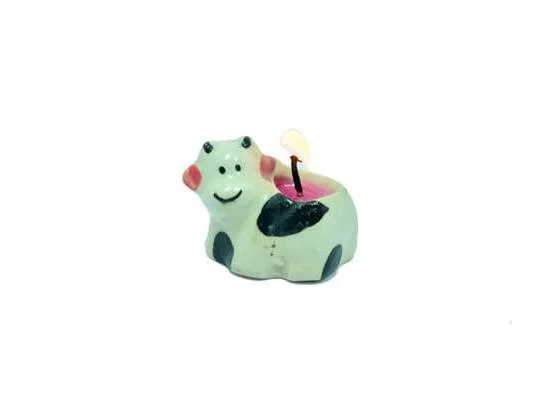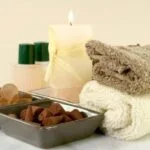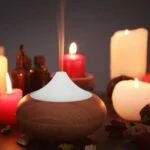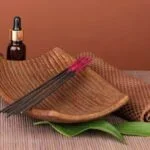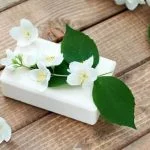Aromatherapy has been used for centuries for its therapeutic benefits, and one of the most popular methods of enjoying its benefits is through the use of diffusers. In this article, we will explore how aromatherapy diffusers work and their role in enhancing well-being.
Aromatherapy diffusers are devices that disperse essential oils into the air, allowing their aroma and beneficial properties to fill a space. These diffusers work through various methods such as ultrasonic, nebulizing, and heat-based diffusion, each with its own unique way of dispersing the oils.
Understanding essential oils is crucial in maximizing the benefits of aromatherapy. From lavender to eucalyptus, different types of essential oils offer various therapeutic benefits such as stress relief, improved sleep, and mood enhancement. Each oil has its own unique properties that contribute to overall well-being when properly dispersed using a diffuser.
In the following sections, we will delve deeper into the mechanics behind how aromatherapy diffusers work and the different methods of diffusion available in the market. In addition, we will also discuss the many benefits of using a diffuser and provide tips on selecting the right one for you based on personal preferences and needs. Stay tuned as we uncover everything you need to know about aromatherapy diffusers and how they can improve your quality of life.
Understanding Essential Oils
Importance of Essential Oils
Essential oils are at the core of aromatherapy and play a crucial role in its therapeutic effects. These oils are highly concentrated plant extracts that have been used for centuries due to their various health benefits. Each essential oil carries its own unique properties that can help alleviate physical and mental ailments, making them an essential component of any aromatherapy practice.
Types and Benefits of Essential Oils
There is a wide array of essential oils available, each with its distinct aroma and healing properties. For example, lavender essential oil is known for its calming effects and is often used to promote relaxation and improve sleep quality.
On the other hand, peppermint essential oil is renowned for its invigorating scent and can aid in alleviating headaches and nausea. Understanding the different types of essential oils and their individual benefits is essential for creating personalized aromatherapy blends tailored to specific needs.
Proper Usage of Essential Oils
When using essential oils in aromatherapy diffusers, it’s important to understand how to handle these potent substances safely and effectively. Proper dilution ratios must be followed to prevent skin irritation or adverse reactions. Furthermore, some essential oils should be avoided during pregnancy or by individuals with certain medical conditions. It’s crucial for users to educate themselves on the safe usage of essential oils to fully reap their therapeutic advantages while avoiding potential risks.
Understanding the intricacies of essential oils enhances the overall aromatherapy experience, allowing individuals to harness their healing powers while promoting overall well-being.
How Aromatherapy Diffusers Work
Aromatherapy diffusers are the key to unlocking the therapeutic benefits of essential oils, allowing users to fully experience their soothing and healing properties. But have you ever wondered how aromatherapy diffusers work? These devices are designed to disperse essential oils into the air in a way that maximizes their aroma and therapeutic effects.
There are different methods of diffusion used in aromatherapy diffusers, each with its own unique way of dispersing essential oils. Ultrasonic diffusers use electronic frequencies to create vibrations that break down essential oils into microparticles which are then released as a fine mist into the air.
Nebulizing diffusers, on the other hand, do not require water or heat, but instead use an atomizer to break down essential oils into smaller particles for inhalation. Lastly, heat-based diffusers use gentle heat to evaporate essential oils and disperse their aroma throughout a room.
The process of diffusion allows essential oils to be easily absorbed by the body through inhalation, providing various health benefits such as relaxation, improved mood, and better sleep quality. Understanding how aromatherapy diffusers work is crucial in order to maximize the effectiveness of essential oils and enjoy their full therapeutic potential.
| Diffuser Type | Method |
|---|---|
| Ultrasonic | Create vibrations for mist dispersion |
| Nebulizing | Atomize oil for inhalation |
| Heat-based | Gently heat oil for evaporation |
Benefits of Aromatherapy Diffuser
Aromatherapy diffusers offer a multitude of benefits that go beyond just making a room smell nice. These devices work by dispersing essential oils into the air, creating a therapeutic and aromatic atmosphere.
Stress Relief
One of the most well-known benefits of using an aromatherapy diffuser is stress relief. Certain essential oils, such as lavender and chamomile, have calming properties that can help reduce feelings of stress and anxiety. When these oils are diffused into the air, they can promote relaxation and create a soothing environment in your home or workspace.
Improved Sleep
Using an aromatherapy diffuser with sleep-inducing essential oils like valerian root or ylang-ylang can help improve the quality of your sleep. The calming aroma can create a tranquil atmosphere that promotes relaxation before bedtime, ultimately leading to a more restful night’s sleep.
Mood Enhancement
Aromatherapy diffusers also have mood-enhancing benefits. Essential oils such as citrus scents like orange or bergamot are known for their uplifting properties and can help improve one’s mood and energy levels. By diffusing these oils into the air, you can create a more positive and energizing environment in your living or working space.
Choosing the Right Diffuser for You
When it comes to choosing the right aromatherapy diffuser for you, there are several factors to consider. With a variety of options available in the market, it’s important to find the one that best suits your personal preferences, room size, and budget. Here are some tips to help you make the right choice:
- Type of Diffuser: There are different types of diffusers available, including ultrasonic, nebulizing, heat-based, and evaporative. Consider the pros and cons of each type before making a decision. Ultrasonic diffusers are popular for their quiet operation and ability to preserve the therapeutic properties of essential oils. Nebulizing diffusers are known for their strong aroma dispersion, while heat-based diffusers use heat to evaporate essential oils.
- Room Size: Take into account the size of the room where you plan to use the diffuser. Some diffusers are designed for smaller spaces, while others are suitable for larger areas. It’s important to choose a diffuser that can effectively cover the space you intend to use it in.
- Budget: Aromatherapy diffusers come in a wide range of prices. Determine your budget and explore options within that range. Keep in mind that higher-priced diffusers may offer additional features or have a longer lifespan.
Ultimately, selecting the right aromatherapy diffuser is a matter of personal preference and practicality. By considering these factors, you can make an informed decision that will enhance your overall aromatherapy experience.
When considering which aroma therapy difusser is best for you; one must also take into account what they want out of their experience with it; do they desire something low maintenance? quiet? Do they need something good at dispersing fragrance? The answers to these questions will help narrow down which specific type or model is best suited for an individual’s needs.
While many people might think all aroma therapy devices operate exactly alike; this simply isn’t true. For example; vaporizers will work well enough; but simple ones on average definitely do not disperse fragrance as evenly as others might. Other common choices include electric fan difussers – perfect if looking for something mobile or energy efficient amongst other reasons.
It’s wise when searching buying an aroma therapy device to keep these factors mentioned above in mind – hopefully leading everyone onto finding the scentaters least capable compnent yet.
Essential Oil Safety and Usage
Aromatherapy diffusers have become increasingly popular as a way to enjoy the therapeutic benefits of essential oils. However, it is important to use these powerful oils safely and responsibly. Essential oils are highly concentrated plant extracts that should be handled with care. Here’s what you need to know about essential oil safety and usage when using aromatherapy diffusers:
1. Proper Dilution: Essential oils are potent and can cause skin irritation or allergic reactions if used undiluted. It is crucial to dilute essential oils before using them in a diffuser. Most guidelines recommend diluting essential oils with a carrier oil, such as coconut or almond oil, before applying them to the skin or using them in a diffuser.
2. Avoid Ingestion: While some essential oils are safe for consumption in small amounts, it is generally recommended to avoid ingesting them, especially when using a diffuser. Ingesting certain essential oils can be toxic and cause serious health problems. It is safest to use essential oils for inhalation or topical application only.
3. Allergies and Sensitivities: Certain individuals may be more sensitive or allergic to specific essential oils. Before using a new essential oil in your diffuser, it is wise to perform a patch test on your skin to check for any adverse reactions. Additionally, be mindful of others’ sensitivities when using aromatherapy diffusers in shared spaces.
4. Diffuser Guidelines: Different types of aromatherapy diffusers have varying diffusion rates and strengths. It’s important to follow the manufacturer’s instructions for your particular diffuser model and not overload it with too much essential oil.
5. Children and Pets: When using an aromatherapy diffuser at home, consider the presence of children or pets in the environment. Some essential oils can be harmful or toxic to animals, so it’s crucial to research which oils are safe to diffuse around pets.
By following these safety guidelines for using essential oils with aromatherapy diffusers, you can enjoy the many benefits of these natural plant extracts while ensuring the well-being of yourself and others around you.
Maintenance and Cleaning of Aromatherapy Diffusers
Maintaining and cleaning your aromatherapy diffuser is essential for ensuring its optimal performance and longevity. Over time, essential oil residue can build up in the diffuser, affecting its ability to disperse the oils effectively. Additionally, neglecting to clean the diffuser can lead to mold and bacteria growth, compromising air quality in your space. In this section, we will provide you with step-by-step instructions on how to properly clean and maintain your aromatherapy diffuser.
To start the cleaning process, make sure to unplug the diffuser from the power source and empty any remaining water and essential oil from the reservoir. Then, use a soft cloth or cotton swab dampened with rubbing alcohol to wipe down the interior of the reservoir, as well as the ultrasonic plate. Be gentle when cleaning the ultrasonic plate to avoid causing any damage.
Next, thoroughly rinse out the reservoir with warm water and mild soap to remove any remaining oil or residue. It’s important to dry all components completely before reassembling and using the diffuser again. Regular maintenance of your aromatherapy diffuser involves wiping it down after each use and using filtered or distilled water to prevent mineral buildup.
Preventing mold and bacteria growth in your aromatherapy diffuser is crucial for maintaining a healthy environment. To avoid this, it’s recommended to clean your diffuser at least once a week if you use it regularly. By following these maintenance and cleaning tips, you can ensure that your aromatherapy diffuser continues to work effectively and provide you with all the therapeutic benefits of essential oils.
| Interval | Cleaning Frequency |
|---|---|
| Daily Use | Once a Week |
| Weekly Use | Every Two Weeks |
| Occasional Use | Once a Month |
Conclusion and Recommendations
In conclusion, aromatherapy diffusers are a popular and effective way to enjoy the benefits of essential oils. By understanding how aromatherapy diffusers work, individuals can make informed decisions about using them for their health and wellness needs. Whether it’s through ultrasonic, nebulizing, or heat-based methods of diffusion, these devices are designed to disperse essential oils into the air in a controlled manner, allowing users to experience the therapeutic effects of aromatherapy.
As mentioned throughout this article, the benefits of using an aromatherapy diffuser are numerous. From stress relief and improved sleep to mood enhancement and even potential health benefits, the power of essential oils in combination with a diffuser is well-documented through scientific research. This makes diffusers a valuable addition to any wellness routine.
When choosing the right diffuser for individual needs, factors such as personal preferences, room size, and budget should be taken into consideration. It’s important to select a high-quality diffuser that meets specific requirements while also being easy to maintain and clean.
By following safety guidelines for essential oil usage and proper maintenance instructions for the diffuser, individuals can fully enjoy the benefits of aromatherapy without any adverse effects. In light of these considerations – along with customer reviews and expert opinions – it’s recommended that individuals invest in trustworthy and reputable brands when purchasing an aromatherapy diffuser.
Frequently Asked Questions
Does Diffusing Essential Oils Actually Work?
Diffusing essential oils can work for some people, as the aroma of certain oils can have a calming or uplifting effect. However, scientific evidence on the effectiveness of essential oil diffusers is limited and varies from person to person.
Is Diffusing Essential Oils Safe for Your Lungs?
Diffusing essential oils can be safe for your lungs if done properly. It’s important to use high-quality, pure essential oils and dilute them properly before diffusion. Also, be mindful of any respiratory conditions or sensitivities you may have.
What Is the Working Principle of a Diffuser?
The working principle of a diffuser involves breaking down essential oils into small molecules and dispersing them into the air as a fine mist. This allows the aroma and properties of the oils to be more easily inhaled and absorbed, providing potential therapeutic benefits.

Are you looking for a natural way to improve your health and wellbeing?
If so, aromatherapy may be the answer for you.

